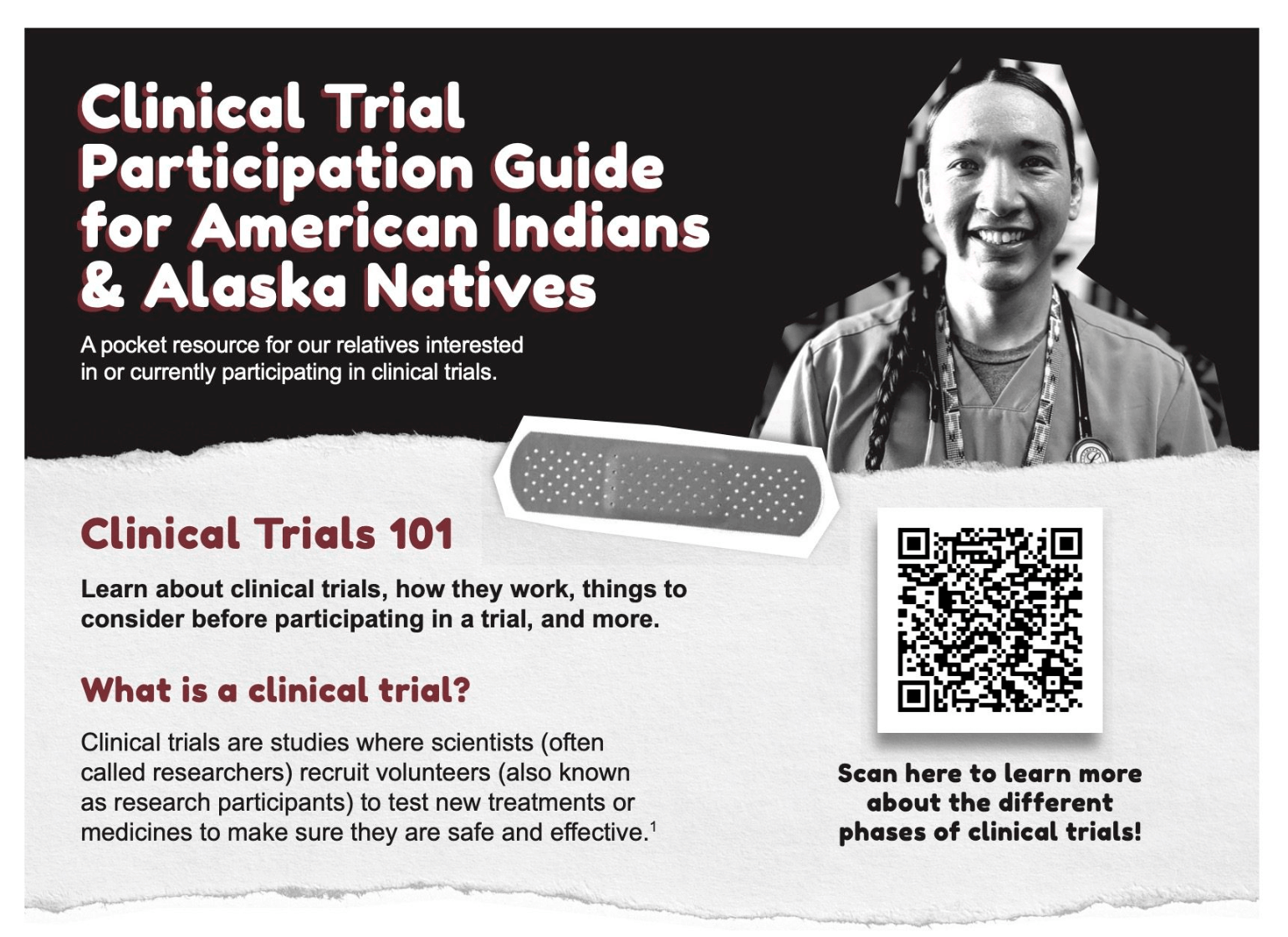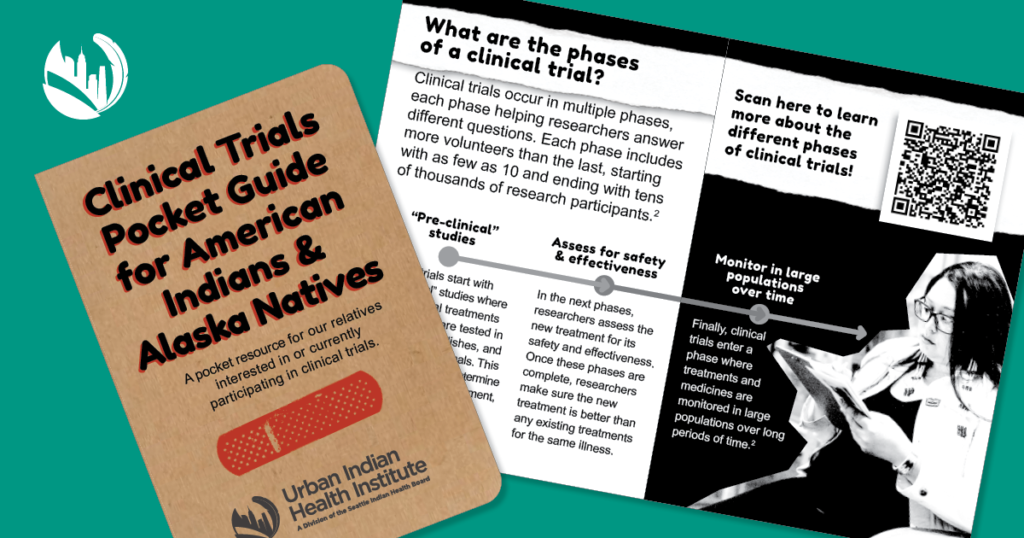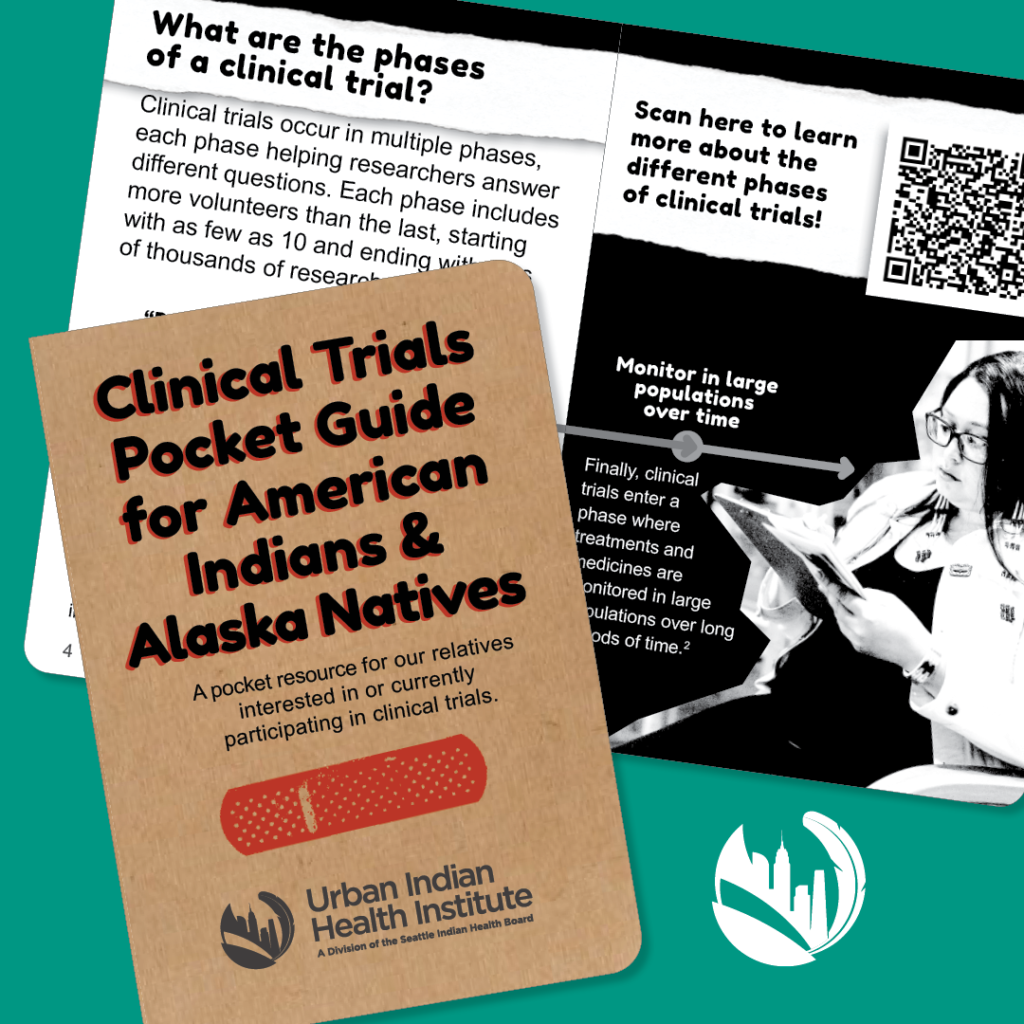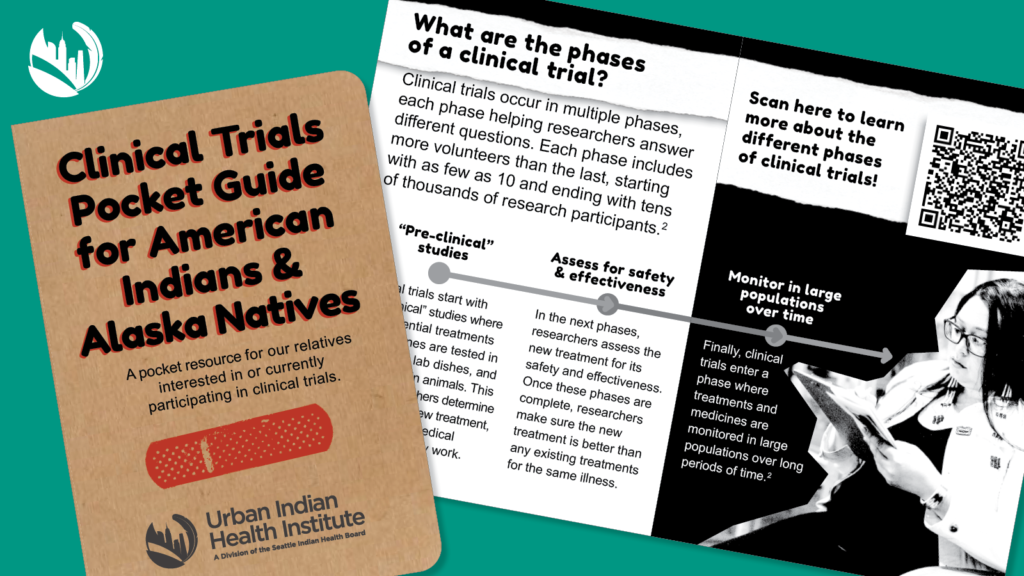About the Guide
The “Clinical Trial Participation Guide for American Indians and Alaska Natives” is a resource for Native people who want to learn more about clinical trials and the process.
Past atrocities by researchers, such as forced sterilizations and other harmful practices, have built distrust between some Native people and medical institutions, sometimes leading to hesitancy in their participation in clinical trials.
This toolkit is intended to help healthcare providers share culturally attuned information about clinical trials with their American Indian and Alaska Native patients.
Share this toolkit with your colleagues who manage your website, social media, and email outreach.
What You Can Do
Within this toolkit, you will find sample content and messaging around clinical trial participation to use in your communications and outreach efforts.
This messaging is intended to act as a guide, but we encourage you to make it your own. Feel free to copy/paste the content and tailor it to best fit your target audiences.
Included Resources:
- Printer friendly four-page flyer version of the Guide Pocketbook
- Social Media Post Language and downloadable Social Media Graphics
- Sample Email content
- Sample Blog Post
Share on Facebook/X/Instagram
Post 1:
Have you ever thought about participating in a clinical trial? The Urban Indian Health Institute’s [tag: @urbanindianhealthinstitute] new Clinical Trial Guide is a tool to help you learn what you can expect and how to advocate for yourself. Download the guide to learn more! #NativeHealth #ClinicalTrialsPost 2:
Participating in a clinical trial doesn’t have to be a mystery. Get your questions answered by checking out the latest resource, “Clinical Trial Pocket Guide for American Indians and Alaska Natives.#NativeHealth #ClinicalTrials
Send an email blast to partners
Use this draft email language to share with partners
Looking to encourage participation from Native people in clinical trials?
Check out the Urban Indian Health Institute (UIHI) Clinical Trial Participation Guide for American Indian and Alaska Natives Pocketbook Guide [add hyperlink to UIHI resource page]. This resource was made specifically for Native people who are currently participating in clinical trials or who would like to understand more about what clinical trial participation can look like.
In the past, Western researchers have violated the rights of Indigenous peoples, which has resulted in a lack of trust in medical organizations and institutions. The legacy of this dynamic has many effects, one of which is a hesitancy to participate in medical research.
When done right and equitably, medical research creates safer and more effective treatment and medicine for everyone. Testing medicine for safety and effectiveness is not new within Native communities. It is something they have done throughout history to promote Indigenous health and wellness.
We want to demystify clinical trial participation and encourage informed conversations between clinical trial participants and researchers, and the information in this pocketbook is one tool to help you support your patients.
Post to your website
Headline: Advocating with and for Native People in Clinical Trials
The Urban Indian Health Institute (UIHI) just published a new resource intended to be a guide on Clinical Trial Participation for American Indians and Alaska Natives!
When Indigenous populations participate in clinical trials, they help ensure that our communities are properly diagnosed and given accurate types and amounts of medication.
When research studies include diverse populations, treatments and medicines are safer and more effective for everyone.
Historically, Native people have always conducted scientific research to prioritize the health and well-being of their people and the land. In fact, many of the common medicines we use today have been adapted from traditional Indigenous medicine.
The resource explains what clinical trials are, how they work, and things to consider before participating in a trial.
With the introduction of Western and non-Native researchers, clinical trials and scientific research violated the rights of Indigenous people. This was a breach of trust.
Part of doing the work to repair that gap in trust is connecting Native health professionals to Native people, and through that connection we know that Native people will be able to be informed more safely about clinical trials and medical research.
Through that connection we strengthen the health of Native people.
We invite you to use and share this resource with your Native patients to help explore and answer questions about clinical trials, like:
– Will health expenses be covered? Who do I speak with to receive these services?
– How is my identity protected during the trial?
– Will my samples be used in other research outside of this study?
– Could my family or community be put at risk by my participation?And other questions that can be helpful to have on hand when considering clinical trial participation.
We hope you find this information useful and share it with your relatives and clients so they feel safe and informed while considering participating in any clinical trial.
View the printer friendly Pocketbook four-pager




